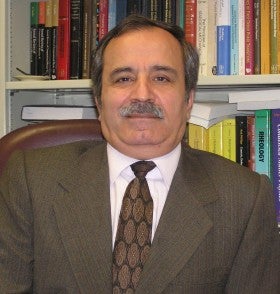Contact: Jenesse Miller 213-810-8554 or jenessem@usc.edu; or Ron Mackovich (213) 810-8583 or rmackovi@usc.edu
U.S. and Iran: As tensions escalate, what’s at stake?
Tensions between the U.S. and Iran continue to escalate. President Donald Trump tweeted today that with minutes to spare, he called off a strike in response to Iran shooting down an American surveillance drone. How close are the two nations to open conflict, and what can be done to defuse the situation? USC experts are ready to talk about the history and new temperature of relations between the two countries.
 As sanctions take a toll, will Iranians blame the U.S.?
As sanctions take a toll, will Iranians blame the U.S.?
Unlike the Arab countries in which the population is generally anti-U.S., but their regimes are pro-U.S., in Iran it has always been the case that the people like the United States, even though they are opposed to its intervention in Iran’s political development. But now, they blame the U.S. for leaving the JCPOA and imposing harsh and inhumane economic sanctions on Iran that have hurt their daily lives very badly. They believe now that the U.S. cannot be trusted.
“Shortages of vital medicine and medical equipment in Iran have begun taking their toll. These are all blamed on the United States. This will have long-term strategic consequences for U.S.-Iran relations and the Middle East.”
Muhammad Sahimi is an expert on Iranian nuclear and political development and a professor of chemical engineering and materials science at the USC Viterbi School of Engineering.
Contact: (818) 952-2799 or moe@usc.edu
 What is the role of the news media?
What is the role of the news media?
“In retrospect, it is clear that lackadaisical news coverage smoothed the path to the unnecessary Iraq War that began in 2003. During the run-up to the conflict, American news organizations were reluctant to forcefully challenge the case presented by the George W. Bush administration — a case built upon nonexistent weapons of mass destruction and nonexistent connections between Iraq and Al Qaeda.
“As the United States edges closer to a military confrontation with Iran, the news media should reexamine their flawed performance before the invasion of Iraq. They should demand solid evidence of alleged dangers posed by Iran to America and its allies, and should forcefully question dubious assertions such as about a purported linkage between Shia Iran and Sunni Al Qaeda.”
Philip Seib is a professor of journalism and public diplomacy and professor of international relations at the USC Annenberg School for Communication and Journalism.
Contact: (213) 740-9611 or seib@usc.edu
Are Trump’s policies provoking conflict?
“The current escalation is the result of Trump’s failed and reckless policy vis-a-vis Iran. By leaving the Iran nuclear deal and ratcheting up pressure, the administration is now seeking to provoke a conflict and force escalated responses from Iran. Even a limited U.S. strike is very likely to spiral towards another disastrous war of choice like Iraq.
“Furthermore, the administration has no constitutional authority to start a war with Iran, which the American people don’t want. What we need is a de-escalation of tensions, a return to diplomacy and signals to Iran that we don’t want war. And we need presidential candidates to make clear that they’ll return to the Iran nuclear deal if Iran is compliant with it.”
Josh Lockman is an expert in U.S. foreign policy, international law and the Middle East and a lecturer at the USC Gould School of Law.
Contact: (310) 995-1819 or josh.lockman@gmail.com




